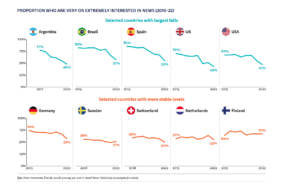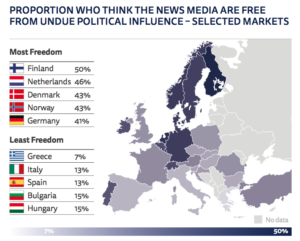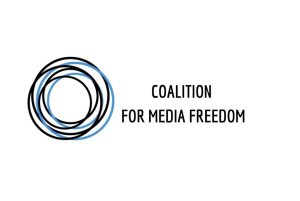Overall, the growing lack of trust in traditional institutions and biases towards news producers and services are significantly changing a market where new models are dynamically evolving.
Falling interest in news
Compared to the last data collected in 2015, it is clear that news is no longer perceived as a vital public good. Although global crises such as the war in Ukraine and the pandemic lead to peaks in news consumption, interest is no longer as sustained, not even in liberal democracies.
This can be explained by the presence of a minority of people online who “have become largely disconnected from the news” due to a general decline of interest. According to the report, worldwide news distribution and consumption are changing structurally.

Selective news avoidance
In search of a reason why consumption levels have generally not increased, despite the uncertain times in which we live, the researchers found that selective exposure to information may be the strategy adopted by consumers to respond to news fatigue. Today, 38% of the population actively avoids news, with peaks in Brazil (54%), the UK (46%), the US (42%) and Australia (41%).
The most common reasons for this behaviour are similar in all markets: the political and pandemic agenda (43%), as well as fears of a negative impact on mood (36%), trust deficit (29%) and useless information (16%), all reflect this crisis in news consumption.
Europeans do not trust news
Overall, 42% of respondents trust individual news brands. In Europe especially, this is closely linked to the striking distrust of public institutions and business people. According to the report, this phenomenon is particularly marked in Central and Eastern Europe, “where oligarchs close to the ruling parties control a large part of the media, or where governments regularly withdraw advertising from publications they do not like.”





